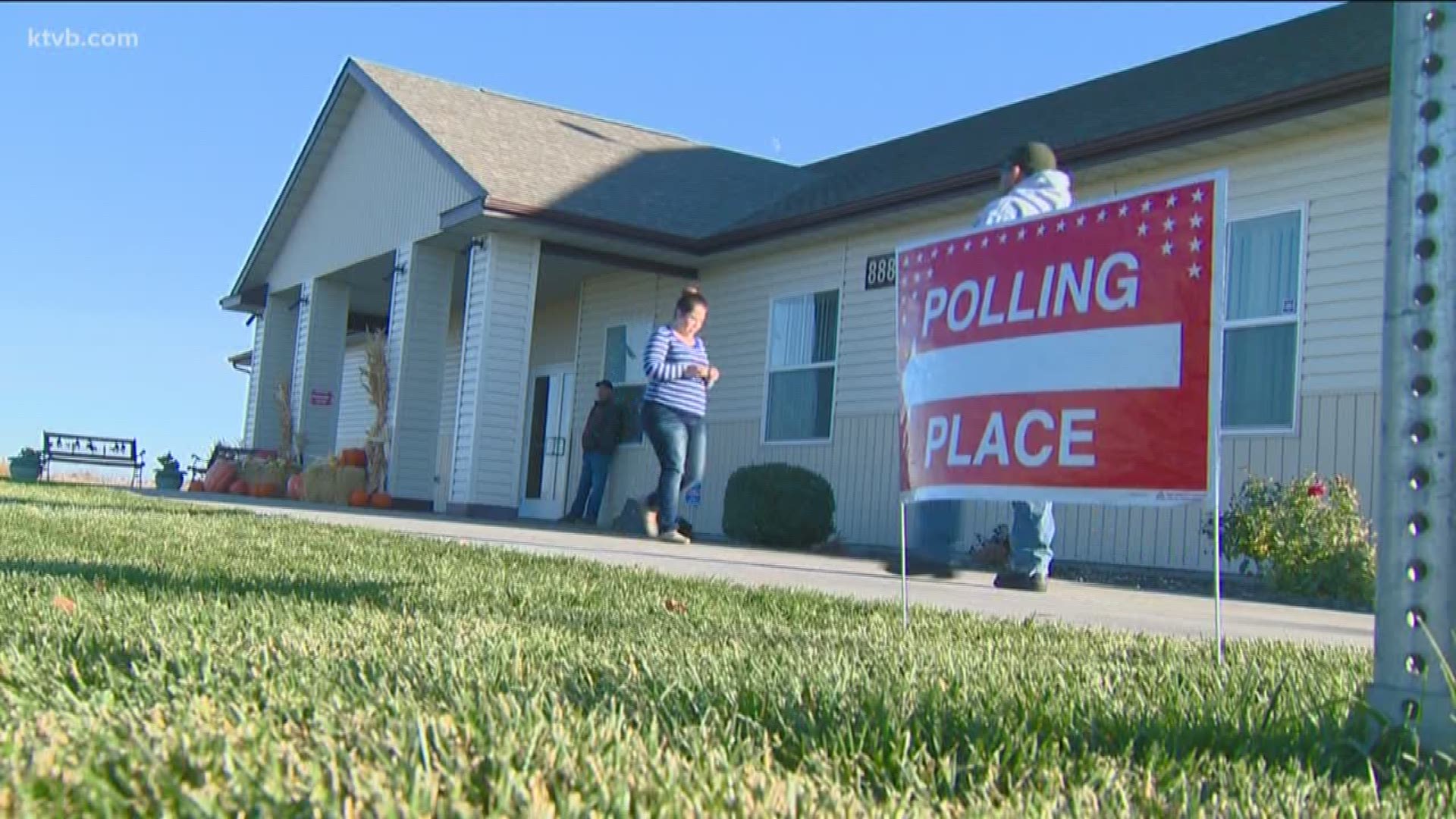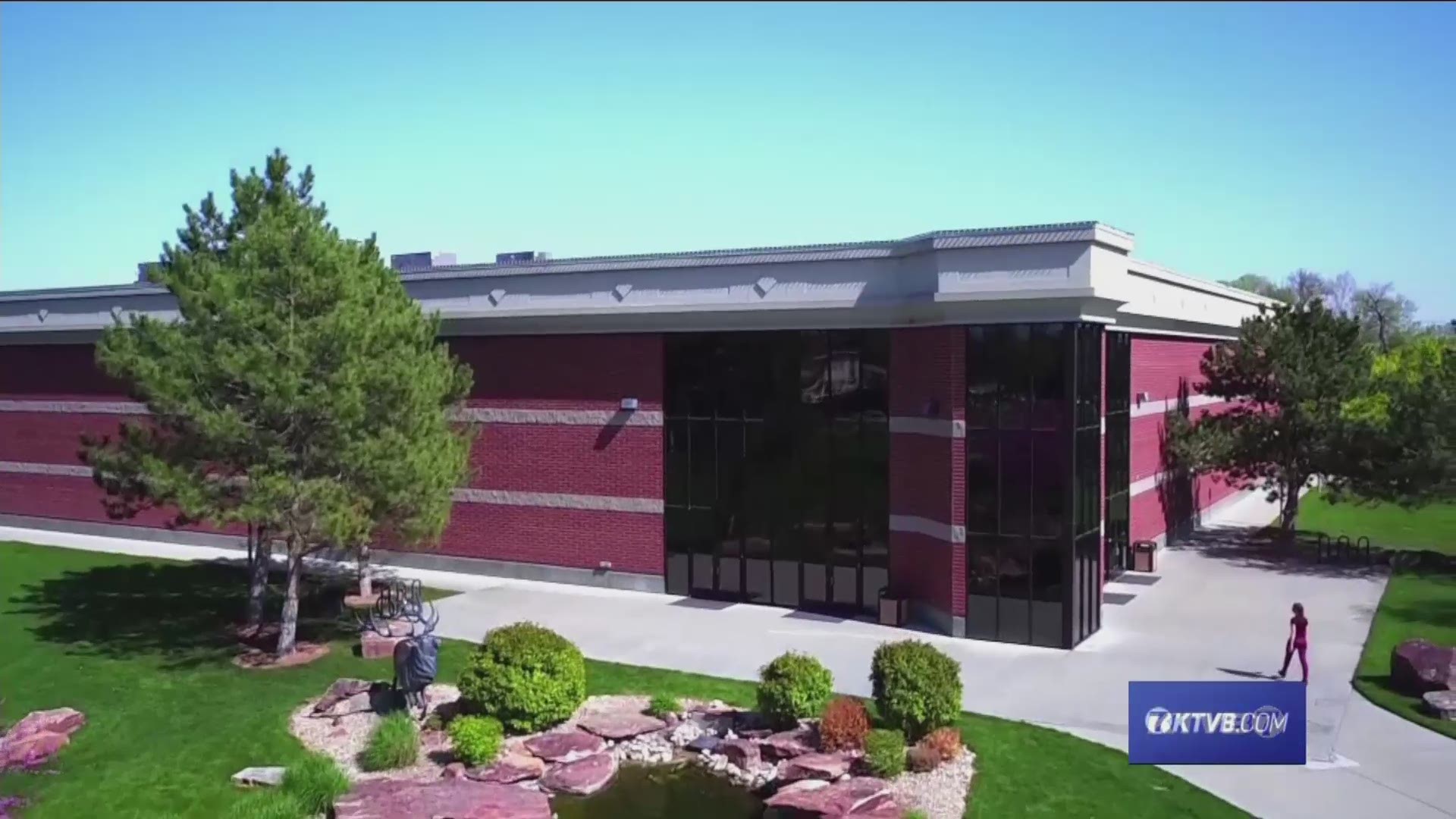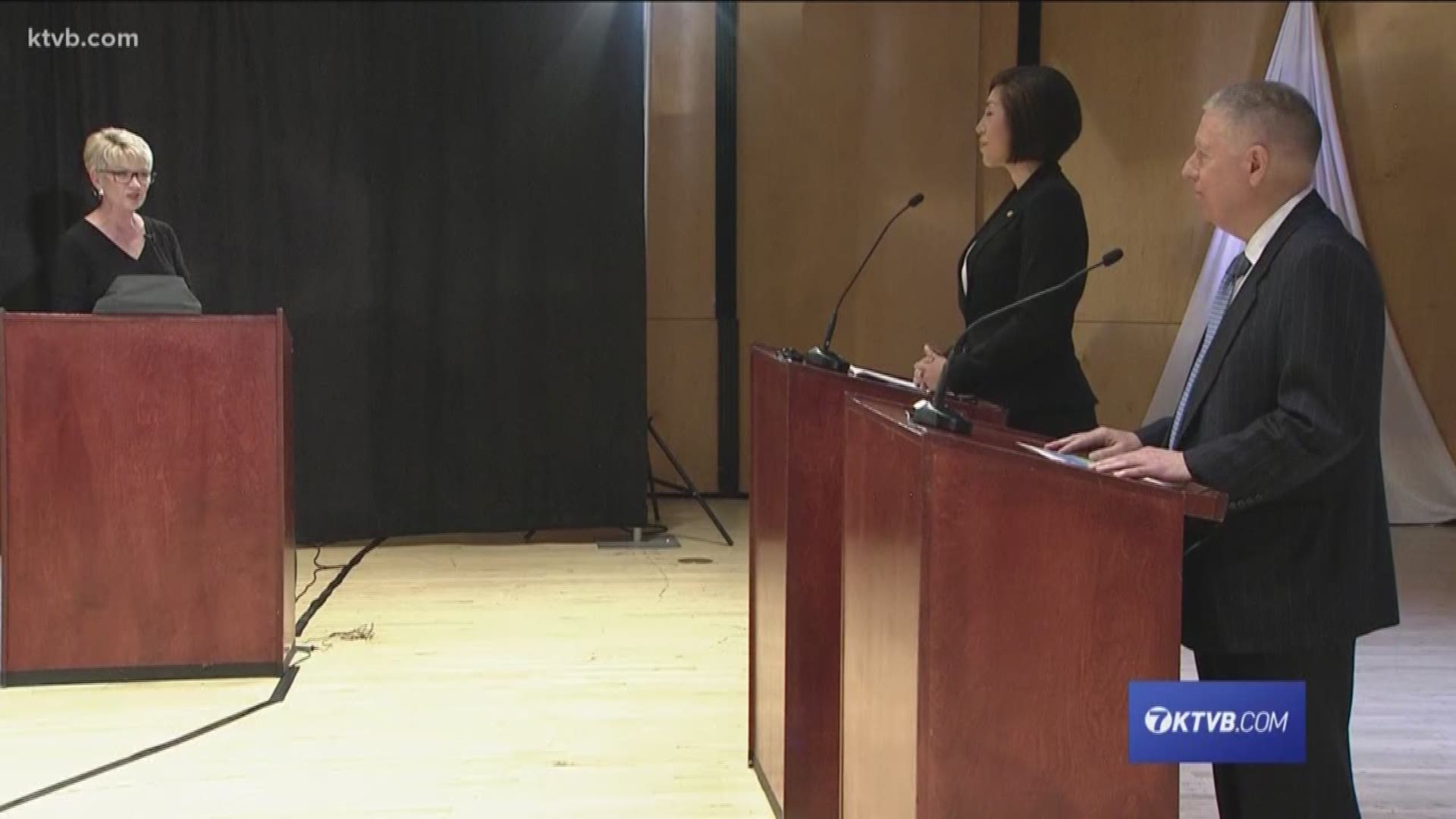BOISE -- In just 12 days, Idahoans will decide the future of our state.
Early voting is underway and will wrap up May 11. If you're waiting until Election Day on May 15 to vote, there's a lot of information you need to know before heading to the polls.
In addition to the partisan ballots, voters will see non-partisan candidates, such as district court judges. All voters will also see school levies and other non-partisan ballot questions, regardless of party affiliation.
First off: why should you care about primary elections?
"The primary this year seems to be different from the ones I've experienced in the past because there's races in both parties. And most of the candidates are filed, at least in the state-wide ones," Idaho Chief Deputy Secretary of State Tim Hurst said. "Primary is always important but this one there's a lot more going on than in the presidential year primary."
Often referred to as "party primaries", the purpose is to allow members of a recognized political party to select their nominees to go on the general election ballot come November.
So what's the primary deal in Idaho?
"You can only vote in one," Hurst said.
According to the Secretary of State's Office, as of 2011 our primary system is closed. A law went into effect restricting someone to only voting in the primary election of the political party for which they are registered. That is unless a party notified the Secretary of State that the party is going to allow other voters (unaffiliated voters and/or voters registered with another party) to participate in their primary election.
The Secretary of State's website explains, "As a result of a federal court decision in Idaho Republican Party v. Ysursa, the 2011 Idaho Legislature passed House Bill 351 implementing a closed primary system. Persons who are not members of a party may not participate in the selection of that party’s nominees. However, Idaho law does allow the political parties the option of opening their primary elections to “unaffiliated” voters and members of other political parties if they so choose. The party chairman must notify the Secretary of State six months prior to the primary if the party intends to open it’s primary election to those outside the party."
The Democratic Party decided to open theirs this year, which is not out of the norm, while the Republicans did not. You must be a registered Republican in the state of Idaho to vote on the Republican ballot.
"The Democratic Party is open for anyone," Hurst added. "If you're any other party you cannot get the Republican ballot. You have to be registered as a Republican."
Can I still register to vote? And do I have to affiliate with a party?
MORE: Idaho Voter Resources
Hurst says Idaho is one of a handful of states that has Election Day registration, therefore you can register to vote during early voting or on Election Day at your polling place, but it's too late now to pre-register by mail. A citizen may register with their county clerk up till 24 days prior to any election.
It's also too late to switch affiliations before the primary; that deadline was the last day a candidate could file for the party primary election, which was March 9 this year.
"If you are affiliated with the Democratic Party now you can't change your party affiliation until after the primary election is over," Hurst said.
But if you're not already registered or you're unaffiliated, you can affiliate when you go to vote by signing a form.
What do I need to in order to vote?
In order to cast your ballot, you'll need a photo identification. Forms of ID allowed include any of the following:
- An Idaho driver’s license or Idaho photo identification card.
- A U.S. passport or federal photo identification card.
- A tribal photo identification card.
- A current student photo ID, issued by an Idaho high school or post-secondary education institution.
- A license to carry a concealed weapon issued by a county sheriff in Idaho.
- If a voter does not have an Idaho driver’s license, they can use an Idaho photo identification card issued by the Department of Transportation to vote.
If you don't have a photo ID, you'll be asked to sign a personal identification affidavit. The voter swears to his or her identity under penalty of perjury on the affidavit. After signing it, the voter will be issued a ballot to be tabulated with all others.
Who wins the primary election for each party or race?
It's pretty simple: the candidate with the most votes.
Because Idaho is historically very red, there are a number of statewide races uncontested by the Democratic Party. Therefore, the GOP primary election often decides the general election winner.
Friday, May 4, is the last day to request a mail-in absentee ballot. Absentee ballots have to be turned in to your county clerk's office by close of polls - 8 p.m. - on Election Day May 15.
Have questions we didn't answer here? Check out the KTVB Voter Guide.



